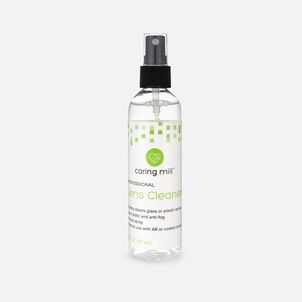Update: the 23andMe Health Service, which is a product that contains only health-related and not ancestry-related testing, is now fully HSA eligible and available at HSA Store and FSA Store!
Just a few short years ago, gene testing was seen as a brave new world for preventive medicine. When Angelina Jolie went public with her BRCA1 mutation diagnosis and subsequent double mastectomy in 2013, few people had heard of BRCA gene mutations. Many weren't even aware genetic testing could be used to inform medical decisions.
Since then, the DNA testing landscape has exploded. Companies like 23andMe, Color and Helix offer kits that can give you a clearer picture of your genetic health - specifically conditions and diseases to which you may be more susceptible.
But because the DNA testing industry is relatively new in the medical world, using your FSA or HSA to pay for a test isn't as straight forward as it would be to pay for most other medical expenses. Here's what you need to know.

Will your FSA/HSA cover DNA tests?
In general, you can get genetic testing from your doctor's office or from one of the many genetic testing services available, such as 23andMe. Few doctors recommend genetic testing unless you're starting a family or have a strong family history of a certain disease. In that case, they'll refer you to a lab for further bloodwork.
Since the advent of at-home DNA tests, more people have been eager to find out what conditions they're genetically at risk for, including Parkinson's, Alzheimer's, Celiac and more. Most of these tests only require a saliva sample, cost between $100 and $300, and provide results within a few weeks.
Getting reimbursed for these tests through your FSA or HSA isn't easy. These accounts only cover genetic testing when you have a Letter of Medical Necessity (LMN), which administrators require to prove that the DNA test is being used for medical reasons. Your doctor or other health care professional will need to write this letter to prove that the test is for the diagnosis, cure, mitigation, treatment, or prevention of disease.
The test might have a medical purpose as its primary goal, but a DNA test might also reveal non-medical information - such as ancestry or ethnicity - so it doesn't always have a medical use. If you order a DNA test that also provides information on your family's ethnic background, you might find it harder to get the expense approved.
If the user doesn't have a family history of a specific disease, it might be difficult to get the doctor to write an LMN for you.
If you're unsure as whether or not the DNA testing will be eligible, and what types of documentation may be required, be sure to check with your FSA administrator.
If I can't get an LMN, what's next?
A popular genetic test that's covered by HSAs and FSAs without an LMN is the BRACAnalysis test, which determines if the user has a mutation on the BRCA1 or BRCA2 gene. A pathogenic mutation on one of these two genes means the patient has a high chance of developing breast and ovarian cancer.
Upon testing positive, many women undergo preventative surgeries of their ovaries, Fallopian tubes and breasts to lessen the cancer risk. Because the BRACAnalysis test is shown to be medically necessary and only tests patients for a specific disease, it will typically be covered by your FSA or HSA without an LMN.
If you do test positive for a medically relevant gene mutation, an appointment with a genetic counselor may be covered by your FSA or HSA. Follow-up appointments with your primary care doctor or specialist will also be covered.
-
Thank you for visiting the HSA Store Learning Center! Don’t forget to follow us for more helpful tips on Facebook, Instagram, and Twitter!

.png)
















